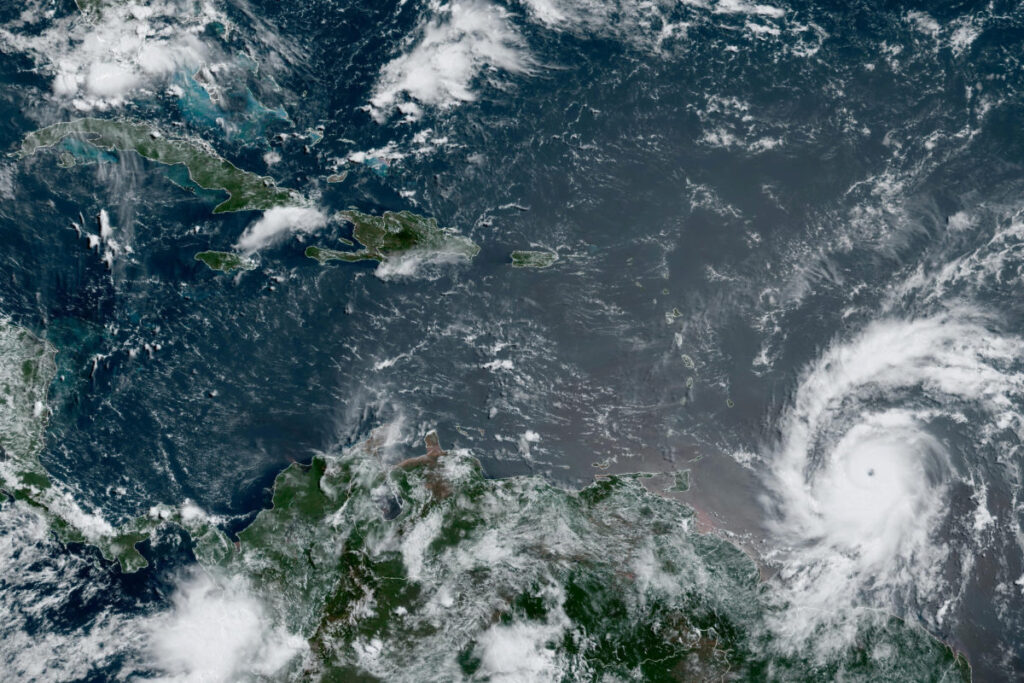
Hurricane Beryl
Hurricane Beryl, the earliest Category 5 hurricane ever recorded in the Atlantic, is currently sustaining extremely high winds as it moves through the Caribbean Sea.
Beryl already has killed at least 21 people, and has significantly damaged infrastructure, making recovery and response challenging. The hurricane slammed into the Yucatán Peninsula in Mexico on Friday and made landfall on Texas early Monday morning, bringing damaging winds, life-threatening storm surge, heavy rainfall and dangerous flooding. Millions are currently without power there, and further damage could occur as the storm moves inland.
International Medical Corps has been closely monitoring Hurricane Beryl and has already begun the process of conducting assessments. We stand ready to respond, both in the United States and internationally, working closely alongside local partners.
Our Response
International Medical Corps and Hurricane Response
International Medical Corps has been responding to major hurricanes and flooding in the United States and Caribbean since 1998, including such devastating storms as Hurricanes Katrina, Michael and Ian in the United States, and Hurricanes Maria, Dorian and Fiona in the Caribbean.
International Medical Corps is responding to Hurricane Beryl. Our first Rapid Response Team (RRT) landed in Jamaica on Saturday, July 6, and is busy coordinating with the Pan American Health Organization and other partners to conduct assessments and identify priority needs. We also sent a RRT to Texas to conduct assessments and meet with local partners.
In Jamaica, the team identified urgent needs for disposable personal protective equipment, medical supplies, solar panels, mobile wash stations and water tanks. Impacted communities are in great need of basic necessities, including food and water, clothing, mattresses and blankets, cleaning kits, water boots, generators, cots, diapers and hygiene items, emergency lighting and tarps. Training of healthcare personnel is also critical—including training in primary trauma care, mass casualty management and Stop the Bleed—to support increased healthcare needs.
In Texas, International Medical Corps will support local response and recovery efforts, focusing on health clinics and organisations serving the most vulnerable communities—those most at-risk from the repetitive impact of flood damage, power outages and increased heat.
As assessments continue, some needs may change. However, our priority activities will likely focus on:
- procuring and distributing medicines, medical equipment and supplies to support local health systems;
- providing non-food items, including hygiene kits and water; and
- helping local partners develop and initiate long-term recovery efforts, including training.
International Medical Corps will continue to closely monitor Hurricane Beryl as it cuts a northeasterly path through the US.